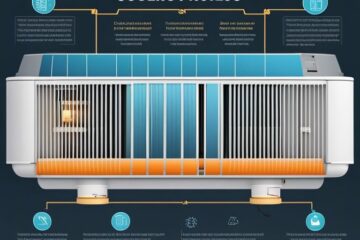Over the past decade, the importance of internet speed has become increasingly crucial in our daily lives. In a world where streaming, video conferencing, and online gaming are the norm, having a good internet speed is imperative to ensure seamless connectivity and a smooth online experience. In this blog post, we will explore what constitutes a good internet speed for your browsing, streaming, and gaming needs, helping you make informed decisions about your internet service.
Defining Good Internet Speed
The definition of a good internet speed can vary depending on your needs and usage. It is important to understand what internet speed means and how it can impact your online activities.
The Importance of Speed in Modern Life
An crucial aspect of modern life is the need for fast and reliable internet speed. Whether you’re streaming movies, participating in video calls, or playing online games, a good internet speed is crucial to ensuring a smooth and uninterrupted experience. Slow internet speeds can lead to frustration, buffering issues, and lagging, which can negatively affect your productivity and overall online experience.
How Internet Speed Affects Online Activities
Speed plays a significant role in determining how quickly you can access websites, download files, stream content, and upload data. For example, a higher internet speed allows you to load web pages faster, stream high-definition videos without buffering, and download large files in a shorter amount of time. On the other hand, a slow internet connection can make these tasks time-consuming and inefficient.
Online activities such as online gaming, video conferencing, and cloud storage also require a good internet speed to ensure a seamless experience. A higher internet speed can reduce latency, improve video and audio quality, and enhance overall performance during these activities.
Factors Affecting Internet Speed
If you’re wondering what factors can affect your internet speed, here are some key considerations to keep in mind:
- Speed: The speed of your internet connection plays a significant role in determining how quickly data can be transmitted between your device and the web. Larger bandwidth allows for faster internet speeds, enabling smoother online activities.
- Bandwidth and Data Caps: Your internet plan’s bandwidth and data caps can limit the speed at which you can access the internet. Bandwidth determines how much data can be transmitted at once, while data caps restrict the total amount of data you can use in a given period. For more information on how much internet speed you need, check out How Much Internet Speed Do You Need?
Bandwidth and Data Caps
Speed is directly influenced by the bandwidth your internet plan offers. A higher bandwidth allows for faster internet speeds, while lower bandwidth can result in slower connections and delays in data transmission. Additionally, data caps impose limits on the amount of data you can use within a specific time frame. Exceeding these caps may lead to reduced internet speeds or additional charges. Assume that streamlining your online activities can help manage your data usage effectively.
Network Congestion and Latency
With network congestion and latency, your internet speed can be significantly affected. Network congestion occurs during peak usage hours when many users are online simultaneously, causing data to move more slowly across the network. Latency, on the other hand, refers to the time it takes for data to travel from your device to the server and back. High latency can result in delays and lags during online activities, impacting your overall internet speed and performance.

Types of Internet Connections
Even before considering what constitutes a good internet speed, it’s vital to understand the different types of internet connections available. Here are some common types:
- DSL (Digital Subscriber Line)
- Cable
- Fiber Optic
- Mobile Hotspots
- Satellite Internet
After familiarizing yourself with these options, you can better determine which type of connection suits your needs best.
DSL, Cable, and Fiber Optic Connections
Connections such as DSL, cable, and fiber optic are more traditional types of internet connections that deliver reliable and consistent speeds. DSL uses telephone lines to transmit data, cable employs coaxial cables, and fiber optic cables use light signals to transfer data at exceptionally high speeds.
Each of these connections has its pros and cons, with DSL being widely available but slower, cable offering faster speeds but susceptible to slowdowns during peak times, and fiber optic providing the fastest and most reliable connection but may not be as readily available in all areas.
Mobile Hotspots and Satellite Internet
With the increasingly mobile nature of our lives, mobile hotspots and satellite internet have become popular options for staying connected on the go. Mobile hotspots utilize cellular data networks to create a portable Wi-Fi network, allowing you to access the internet from virtually anywhere.
Satellite internet, on the other hand, beams internet signals from satellites directly to a dish installed at your location, making it a viable option for remote areas where traditional connections may not reach.
Internet Speed Requirements for Different Activities
Browsing and Social Media
With browsing and social media activities, you don’t require a very high internet speed. A basic connection with speeds of around 1-5 Mbps should be sufficient for scrolling through your favorite websites, checking social media updates, and sending messages. These activities involve minimal data transfer, so you don’t need a high-speed connection to enjoy them without interruptions.
Streaming and Online Gaming
Different streaming services and online games have varying internet speed requirements. For streaming services like Netflix, Hulu, or Amazon Prime Video, you generally need at least 3-25 Mbps for standard definition streaming and up to 25-100 Mbps for 4K streaming. Online gaming, on the other hand, typically requires higher speeds to ensure smooth gameplay and lag-free experience. A minimum speed of 3-6 Mbps is recommended for online gaming, but for a better experience, speeds of 10-25 Mbps or higher are ideal.
Another important factor to consider for online gaming is the latency of your connection, which refers to the time it takes for data to travel from your device to the game server and back. Lower latency, often measured in milliseconds, is crucial for fast-paced online games where split-second decisions can make a difference between winning and losing.
The Impact of Internet Speed on Productivity
Remote Work and Online Collaboration
For remote work and online collaboration, a good internet speed is crucial. Slow internet speeds can lead to delays in communication, file sharing, and overall productivity. Imagine trying to join a video conference with a poor connection – you might miss important information or have trouble contributing to the discussion. With a good internet speed, you can seamlessly collaborate with colleagues, share resources, and stay connected regardless of your physical location.
Cloud Computing and Data Transfer
With a good internet speed, tasks like accessing cloud-based files, uploading documents, and transferring data become quick and efficient. Slow internet speeds can significantly hamper these processes, leading to frustration and wasted time. Cloud computing relies on a reliable internet connection to function optimally, so having a good internet speed is important for maximizing productivity.
To optimize cloud computing and data transfer, consider upgrading to a higher internet speed plan if you frequently work with large files or depend on cloud services for your workflow. A faster internet speed can save you time and ensure that you can work productively without being held back by sluggish data transfer speeds.
Internet Speed and Online Security
Not only is internet speed important for smooth browsing and streaming, but it also plays a crucial role in ensuring your online security. Regarding staying safe on the internet, the speed of your connection can impact how secure your data is.
Encryption and Data Protection
One imperative aspect of maintaining online security is encryption, which converts information into a code to prevent unauthorized access. A good internet speed is necessary to support encryption protocols, ensuring that your data remains secure as it travels between your device and the websites you visit.
Malware and Virus Protection
Viruses and malware pose significant threats to your online security, compromising your personal information and potentially causing damage to your devices. A fast internet connection allows for quick and efficient updates to your antivirus software, helping to protect your system from the latest threats.
Viruses can enter your device through malicious downloads, email attachments, or compromised websites. With a good internet speed, you can run regular scans and updates to your antivirus software, enhancing your device’s defenses against these threats.
Malware, including ransomware and spyware, can infiltrate your system and cause harm without your knowledge. By having a fast internet connection, you can promptly detect and remove any malicious software, reducing the risk of falling victim to cyberattacks.
How to Measure Internet Speed
Many factors can affect your internet speed, such as the type of connection you have, your hardware, and the service provider. To accurately assess your internet speed, you can perform various tests using online speed tests and tools.
Online Speed Tests and Tools
Tests conducted through websites like Ookla’s Speedtest.net or Fast.com can provide you with a quick snapshot of your internet speed. These tests measure your download and upload speeds, as well as latency. They are user-friendly and give you an immediate idea of how your internet connection is performing.
Interpreting Speed Test Results
Speed test results typically display your download and upload speeds in Mbps (megabits per second). For example, a result showing a download speed of 25 Mbps means you can download 25 megabits of data per second. Keep in mind that the speeds you see can vary throughout the day based on network traffic and other factors.
Interpreting speed test results is crucial in determining if your internet speed meets your needs. Generally, higher download and upload speeds are better for activities like streaming HD videos, online gaming, or video conferencing. If your speed test results are consistently below what your internet service provider promised, you may need to troubleshoot or consider upgrading your plan.
Average Internet Speeds Around the World
Once again, when it comes to internet speeds around the world, there are significant variations based on location, infrastructure, and technological advancements. Understanding where your country stands in comparison to others can give you a better perspective on what is considered a good internet speed globally.
Global Internet Speed Rankings
Rankings can provide valuable insights into how countries compare in terms of internet speeds. Countries like South Korea, Singapore, and Japan often rank at the top for having some of the fastest internet speeds in the world. On the other hand, countries in Africa and parts of South America may lag behind due to limited infrastructure and resources.
Regional Variations in Internet Speed
With regional variations in internet speed, even within a single country, you may experience differences in the quality of your internet connection. Urban areas tend to have faster and more reliable internet speeds compared to rural areas. This is because urban regions are typically more densely populated and have better access to internet infrastructure.
Another factor that can influence regional variations in internet speed is the level of competition among internet service providers (ISPs). In areas where there is more competition, ISPs are incentivized to provide faster speeds and better services to attract and retain customers. Conversely, in areas with limited options for ISPs, internet speeds may be slower and prices higher due to the lack of competition.
The Future of Internet Speed
Emerging Technologies and Trends
To keep up with the increasing demand for faster internet speeds, technology companies are constantly developing new innovations and trends. One of the most promising technologies on the horizon is 5G networks. 5G is the fifth generation of wireless technology and is expected to provide significantly faster speeds and lower latency compared to previous generations.
Predictions for Faster Internet Speeds
As technology continues to advance, the future of internet speeds looks incredibly promising. With the widespread adoption of 5G networks, you can expect to see faster and more reliable internet connections in the coming years. Additionally, advancements in fiber-optic technology and satellite internet are also expected to contribute to faster speeds and improved connectivity.
Technologies such as machine learning and artificial intelligence are also being integrated into network management systems to optimize internet speeds and provide a more seamless online experience. These advancements will undoubtedly play a significant role in shaping the future of internet speeds and connectivity.
Common Internet Speed Issues
Slow Download and Upload Speeds
Keep in mind that slow download and upload speeds can be frustrating when you’re trying to stream movies, upload large files, or even just browse the web. If you find yourself waiting longer than usual for webpages to load or files to download, it may indicate that your internet speed is not up to par.
If you consistently experience slow speeds, you may want to check with your internet service provider to ensure you’re getting the speeds you’re paying for. Additionally, factors like the number of devices connected to your network, the type of connection you have, and the quality of your modem and router can all impact your internet speed.
Buffering and Lagging
One common issue that arises with lower internet speeds is buffering and lagging while streaming videos or playing online games. This can be incredibly annoying, especially when you’re in the middle of watching your favorite show or engaging in a competitive online match.
Understanding
Buffering occurs when your device doesn’t receive data quickly enough for smooth playback, causing pauses or delays. Lagging refers to a delay between when data is sent and when it is received, leading to a lack of synchronization in real-time activities. Addressing these issues may involve upgrading your internet plan, optimizing your network setup, or troubleshooting any hardware issues.
Troubleshooting Internet Speed Problems
Identifying the Source of the Issue
Troubleshooting internet speed problems can be frustrating, but the first step is to identify the source of the issue. Start by checking if the problem is with your Wi-Fi connection or your internet service provider (ISP). You can do this by testing the internet speed on multiple devices and seeing if the issue persists.
Resolving Speed Issues with Your ISP
Issues with your internet speed could be due to problems with your ISP. Contact your ISP to inquire about any potential outages or technical issues in your area that could be affecting your connection. It’s also a good idea to ask your ISP about the internet plan you’re subscribed to and whether it’s still suitable for your needs.
Resolving speed issues with your ISP may also involve troubleshooting your equipment, such as your modem and router. Sometimes, simply resetting or upgrading your equipment can help improve your internet speed.

Upgrading Your Internet Speed
After determining that your current internet speed is not meeting your needs, it may be time to consider upgrading your plan. There are a few avenues you can explore to improve your internet speed.
Negotiating with Your ISP
Negotiating with your Internet Service Provider (ISP) can be a fruitful way to potentially increase your internet speed without having to switch providers. Contact your ISP and inquire about their higher speed plans and any current promotions they may be offering. Express your dissatisfaction with your current speed and inquire if there are any options available to upgrade your service. ISPs are often willing to work with customers to find a solution that fits their needs and budget.
Exploring Alternative Internet Providers
The world of internet service providers is vast, and there may be other options available in your area that could offer faster speeds than your current provider. Research other ISPs in your area and compare their plans and pricing to see if there is a better option available. Some providers may offer fiber-optic or cable internet, which can provide significantly faster speeds compared to traditional DSL connections. Consider the reliability, speed, and pricing of alternative providers before making a decision to switch.
Another important factor to consider when exploring alternative internet providers is the level of customer service and technical support they offer. A provider may offer fast speeds, but if they have a reputation for poor customer service, it could lead to frustration down the line. Look for reviews and feedback from current customers to get a sense of what to expect when dealing with a new ISP.
The Cost of Good Internet Speed
Now, when considering the cost of good internet speed, there are a few factors to keep in mind to ensure you’re getting the best value for your money. Pricing plans and data caps play a significant role in determining how much you’ll pay for reliable internet access.
Pricing Plans and Data Caps
Plans offered by internet service providers can vary widely in terms of speed, data limits, and pricing. It’s crucial to choose a plan that not only meets your speed requirements but also fits within your budget. Keep an eye out for any data caps imposed by the provider, as exceeding these limits can result in additional charges or slower speeds.
Calculating the Cost-Benefit Ratio
On top of the monthly cost of your internet plan, it’s important to consider the overall cost-benefit ratio. While higher-speed plans may come with a higher price tag, they can also improve your online experience by allowing for faster downloads, smoother streaming, and better online gaming. Consider how you use the internet and weigh the benefits of a faster connection against the additional cost.
It’s crucial to strike a balance between the speed you need and the price you’re willing to pay. Assessing your internet usage habits and budget constraints will help you determine the optimal internet speed and pricing plan for your needs.
Conclusion
Hence, when considering what constitutes a good internet speed for your needs, it is important to assess your usage habits and requirements. Factors such as the number of devices connected, the type of online activities you engage in, and the size of your household will all play a significant role in determining the ideal internet speed for your situation. By understanding these factors and selecting an appropriate internet speed plan, you can ensure a smooth and uninterrupted online experience tailored to your specific needs.









